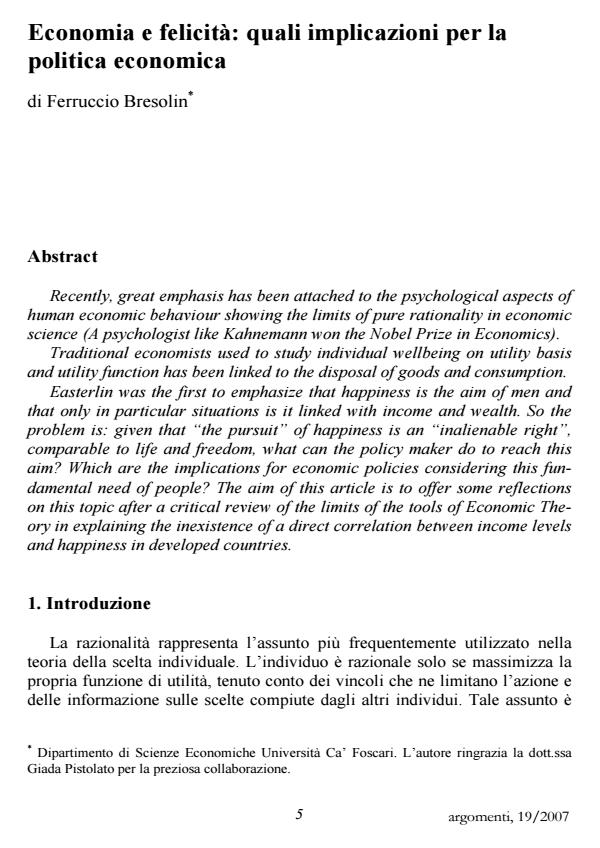Economia e felicità: quali implicazioni per la politica economica
Journal title ARGOMENTI
Author/s Ferruccio Bresolin
Publishing Year 2007 Issue 2007/19
Language Italian Pages 23 P. 5-27 File size 104 KB
DOI
DOI is like a bar code for intellectual property: to have more infomation
click here
Below, you can see the article first page
If you want to buy this article in PDF format, you can do it, following the instructions to buy download credits

FrancoAngeli is member of Publishers International Linking Association, Inc (PILA), a not-for-profit association which run the CrossRef service enabling links to and from online scholarly content.
Recently, great emphasis has been attached to the psychological aspects of human economic behaviour showing the limits of pure rationality in economic science (A psychologist like Kahnemann won the Nobel Prize in Economics). Traditional economists used to study individual wellbeing on utility basis and utility function has been linked to the disposal of goods and consumption. Easterlin was the first to emphasize that happiness is the aim of men and that only in particular situations is it linked with income and wealth. So the problem is: given that the pursuit of happiness is an inalienable right, comparable to life and freedom, what can the policy maker do to reach this aim? Which are the implications for economic policies considering this fundamental need of people? The aim of this article is to offer some reflections on this topic after a critical review of the limits of the tools of Economic Theory in explaining the inexistence of a direct correlation between income levels and happiness in developed countries.
Ferruccio Bresolin, Economia e felicità: quali implicazioni per la politica economica in "ARGOMENTI" 19/2007, pp 5-27, DOI: